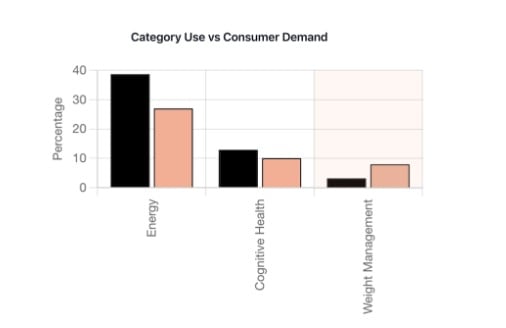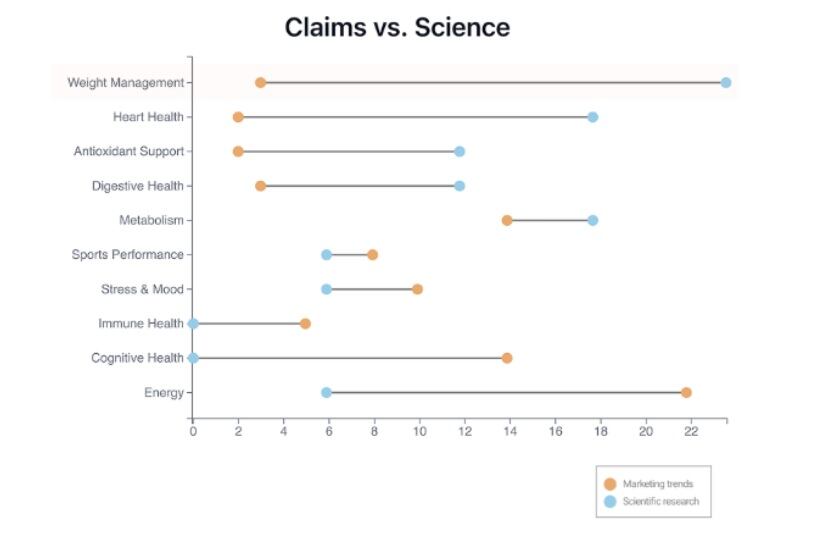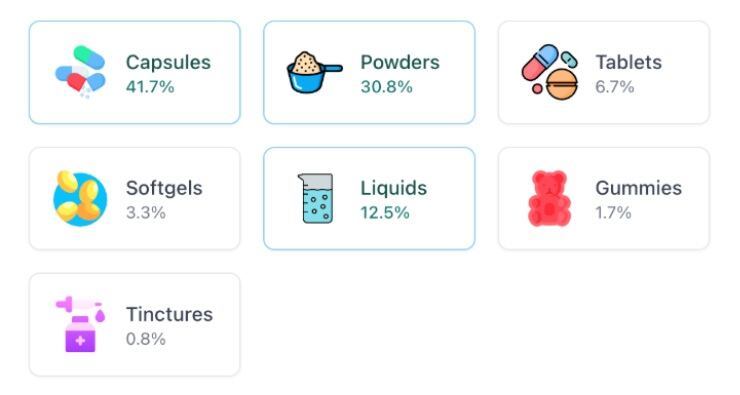Yerba Mate, the traditional South American tea, is gaining serious traction—especially online, where it is been being highlighted for its potential weight loss benefits. According to Signals data, consumer interest in Yerba Mate has surged in 2025, with search volume increasing 40% between January and June.
And according to social media analysis, consumers are more than twice as likely to associate Yerba Mate with weight loss benefits than brands are to promote those benefits. That gap signals unmet demand—and opportunity.

Underserved claim space: Weight management
While Yerba Mate is commonly used in products positioned for energy and cognitive benefits, its application in weight management lags behind consumer interest. Brands have a potential opening to lean into this claim area more aggressively.

Strong (but underused) science
Signals’ Claims vs. Science analysis shows support for weight-related benefits. A systematic review of 32 studies found Yerba Mate improves metabolism and has antioxidant and anti-inflammatory effects. One randomied controlled trial even showed a statistically significant reduction in body fat among participants taking active Yerba Mate extract, though changes in weight and BMI did not reach significance.
While further review is needed to determine claim feasibility, the preliminary evidence is promising. The two mentioned studies, plus a full list of relevant studies is available in the Yerba Mate ingredient profile on Signals.

Format innovation: A gummy-sized opportunity
Yerba Mate is heavily concentrated in capsules (64.5%) and powders (12.9%) but remains rare in gummies (3.2%). That’s a potential whitespace for brands looking to stand out in a crowded weight management space. One caveat is around the ability to include an efficacious dose in formats like gummies or tablets.

The bottom line
High consumer interest, promising supporting science and format gaps all point to Yerba Mate as a potentially compelling, under-leveraged ingredient for weight management products.
Afif Ghannoum is CEO of CPG Radar, whose Signals platform connects consumer demand, clinical research and market activity to reveal both ingredient and category opportunities. By analyzing dosage, category use, search trends and claim patterns, Signals helps stakeholders understand how innovation is evolving across the supplement landscape.
